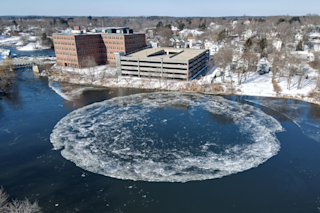by John Hawks, an anthropologist at the University of Wisconsin—Madison who studies the genetic and environmental aspects of humanity's 6-million-year evolution. This post ran in slightly different form on his own blog.
Philip Ball writes in The Guardian about another new initiative from NSF to fund "potentially transformative" research. He begins his essay with this:
The kind of idle pastime that might amuse physicists is to imagine drafting Einstein's grant applications in 1905. "I propose to investigate the idea that light travels in little bits," one might say. "I will explore the possibility that time slows down as things speed up," goes another. Imagine what comments these would have elicited from reviewers for the German Science Funding Agency, had such a thing existed. Instead, Einstein just did the work anyway while drawing his wages as a technical expert third-class at the Bern patent office. And that is how he invented ...













